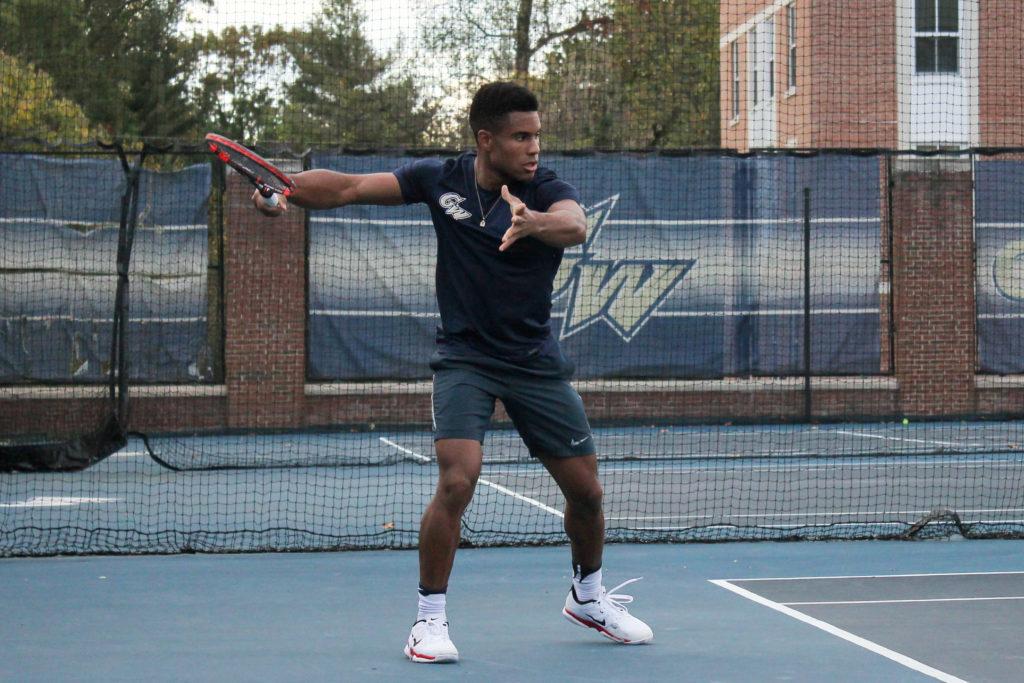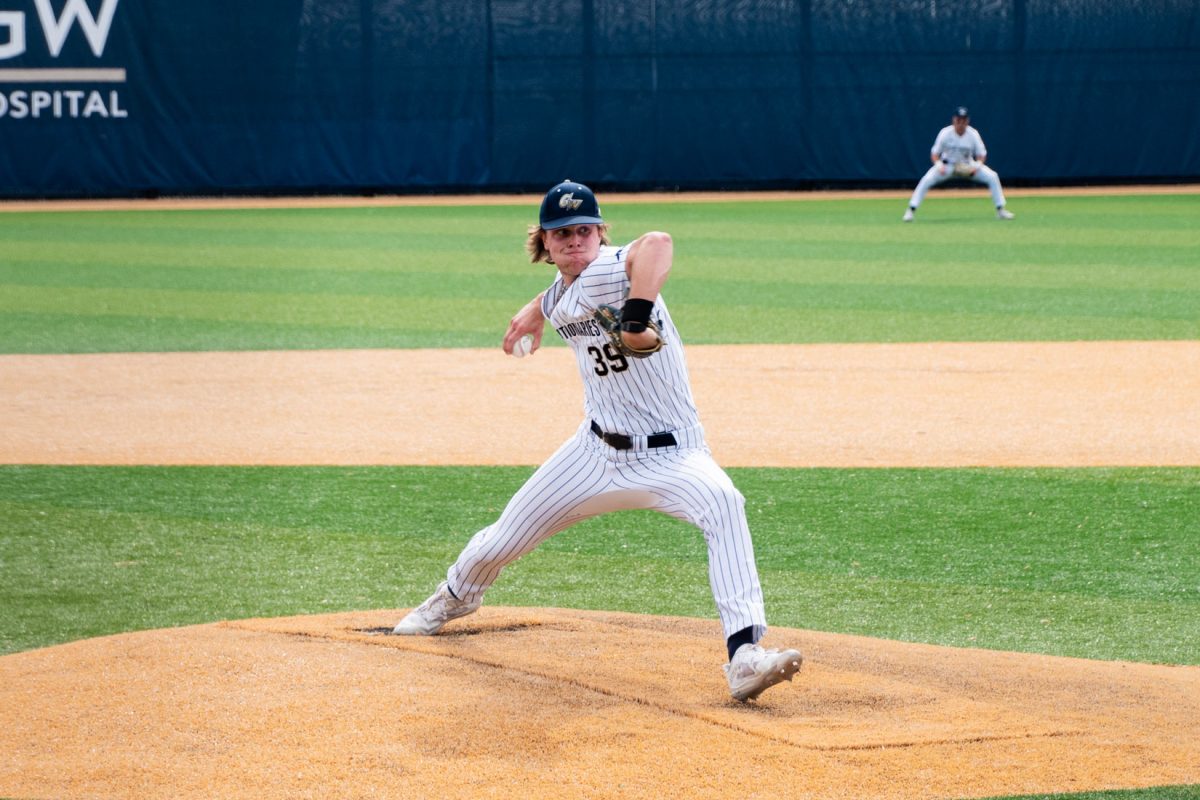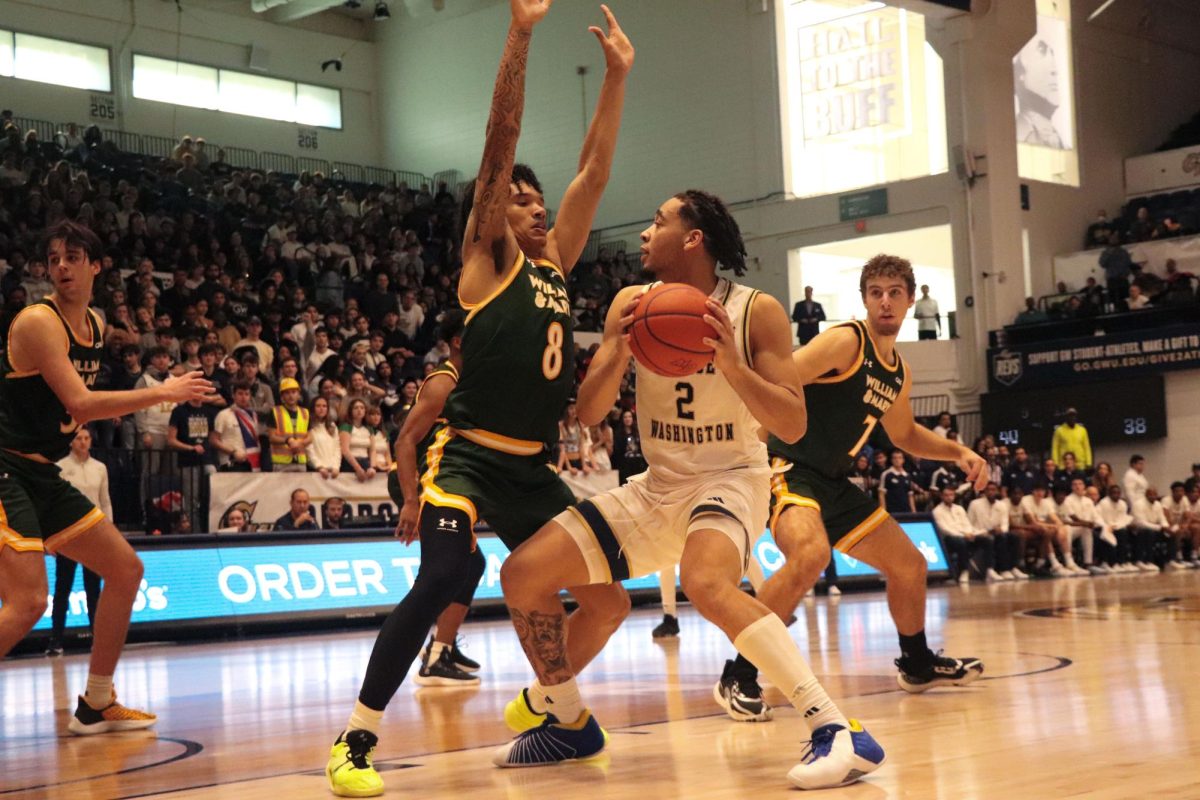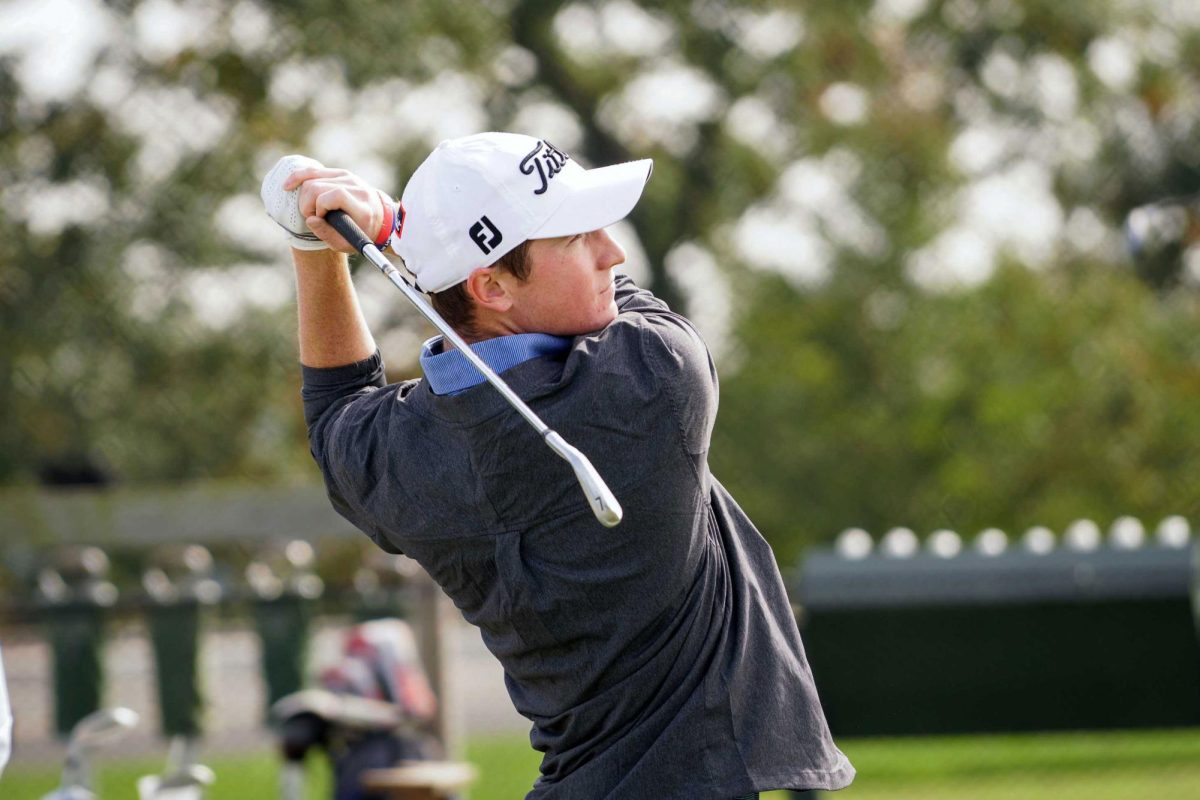A former student is suing members of the athletic department, alleging tennis coaches and players used racial slurs and discriminated against him and “unlawfully” suspended him from the team.
In a 35-page complaint filed in the D.C. District Court Nov. 26 but made available to the public last week, Jabari Stafford – a former men’s tennis player – claims multiple tennis coaches, players and department staff members “fostered an environment that was conducive to blatant discriminatory conduct.” He alleges that even though he brought his concerns to multiple administrators, the University failed to investigate his claims or reprimand the coaches.
Stafford, representing himself, asks for $1 million to compensate for the discriminatory conduct and mental and emotional distress.
“Not only did Defendant condone discrimination, the University, through its coaching staff, perpetrated that racist conduct on Plaintiff by letting him know in no uncertain terms that he was inferior to his white teammates and ultimately, it was only his white teammates who mattered,” the lawsuit states.
The lawsuit names the University, former athletic director Patrick Nero, assistant athletic director Nicole Early, former men’s tennis head coaches Greg Munoz and David Macpherson and former and current tennis players as defendants in the case.
University spokeswoman Lindsay Hamilton said the University will respond “as appropriate” to court documents but will not comment on pending litigation.
“It is worth noting that complaints filed in court only represent one side’s view of a case,” Hamilton said.
Athletic department spokesman Brian Sereno declined to comment, deferring to Hamilton.
Stafford alleges he faced “substantial, overt racism” when members of the men’s tennis team called him “monkey” and used other racial slurs toward him and tapped into stereotypes about black men asking him about the size of his genitals and criticizing him for being angry.
The suit also alleges that teammates sexually harassed and assaulted another player who is a person of color on the team on multiple occasions, but the situation was ignored by the team’s coaching staff.
He also claims the University was negligent and inflicted emotional distress on him because it failed to investigate Stafford’s reports that coaches and players exhibited racist behavior.
Stafford alleges that Munoz, one of the former head coaches, targeted him and other players of color from the start of the season during his freshman year in fall 2014. He claims that Munoz threatened non-white players and told them they would be punished if they did not perform well.
Munoz, he alleges, was aware of discriminatory behavior by other players and was also aware of racist Facebook posts that members of the tennis team had shared online but did nothing to reprimand those involved.
Stafford said Munoz also chastised him after he confronted former men’s tennis player and team captain Chris Reynolds for making “blatantly racist comments” in or around January 2015. Reynolds did not return multiple requests for comment.
Shortly after the incident, Stafford received an email from Munoz saying he had been suspended from the team “until further notice,” claiming Stafford was disrespectful to his teammates, had anger issues and was “selfish” because he did not support his teammates. The suspension was issued before the team had played any matches, he said.
Stafford said his suspension violated NCAA and University policies because he did not receive due process prior to the suspension.
Stafford added that the behavior he was subjected to and his suspension led him to seek treatment from a psychologist and endure depression and anxiety.
He alleges that he arranged a meeting with Munoz, assistant athletic director Nicole Early and his father to discuss the suspension further. At the meeting, Stafford claims Munoz told him he had issues interacting with teammates and was disrespectful to others. He claims Munoz viewed him as a stereotypical “angry black male.”
During the meeting, Stafford asked to meet with Nero, the former athletic director, but he alleges that Early and Munoz declined to arrange a meeting because “they were handling it.” When reached for comment, Nero said he was “not aware” of the lawsuit.
But shortly after the suspension, Stafford said Munoz offered to let him back on the team if he rushed a social fraternity, which Stafford said had a reputation as a “white” group. Munoz wanted him to join the fraternity because Stafford had “major social problems,” Stafford alleges in the suit.
After receiving a bid from the fraternity, Stafford said Munoz asked him to apologize to all of his teammates before rejoining the team, which Stafford said was “extremely difficult and humiliating.”
Stafford claims that after he was reinstated, he continued to endure racist comments and discriminatory treatment, like when teammate Danil Zelenkov allegedly asked him, “Were all of your ancestors slaves at one point?” Other teammates exhibited similar behavior – which made Stafford feel “less than human” – but none faced disciplinary action as Stafford had, he claims.
Stafford alleges that Munoz brushed off the other players’ behavior and “dismissed the severity” of their actions or remarks on a regular basis. Stafford claims that after he rejoined the team, he was afraid to report discriminatory behavior to Munoz, fearing he would call him “aggressive” or remove him from the team again.
Former men’s tennis players Francisco Dias, Christos Hadjigeorgiou, Fernando Sala, Cahit Kapurkian, Chris Fletcher and current men’s tennis player Dennis Afanasev allegedly also participated in discriminatory or racist behavior, according to the suit. All did not return multiple requests for comment.
Munoz, who resigned midseason from his post in February 2016 citing “personal reasons,” said the lawsuit includes “far-fetched” allegations and “made-up stories and exaggerations.” While he said several members of the team had temper issues, Stafford was suspended because he showed up late to practices and lost to historically poor-performing opponents.
“Jabari seemed like a nice kid, he was polite, but he didn’t feel rules applied to him,” Munoz said in a Facebook message. “We tried to help him a lot.”
But Stafford alleges that the discrimination against him continued even after Munoz left the team.
At a spring 2016 tournament, Stafford alleges that Torrie Browning, then the associate head coach for men’s tennis and the current head coach for the women’s tennis team, took him out of the lineup but gave playing time to his white teammates, even though he had been performing well.
Stafford claims he arranged a second meeting with Early, the assistant athletic director, after the tournament, where Browning claimed she cut his playing time because he wasn’t a “team player” and “hit the ball too hard,” according to the lawsuit. Browning did not return a request for comment.
The next semester, after David Macpherson replaced Munoz as head coach, Stafford said he stopped receiving communication about team meetings or events, some of which were required to attend if he wanted to play that season. Macpherson allegedly told him that the team would hold tryouts in the fall, but Stafford was never notified that he was kicked off the team, the suit claims. Macpherson did not return a request for comment.
Stafford said he and his father then met with the associate provost for diversity and inclusion and one of the senior associate athletic directors, who said they were “mortified” and confused about the racism he experienced. The administrators said Stafford had to have signed a waiver to be removed from the team, which he had not done, according to the complaint.
Stafford tried out for the team again and was reinstated, but several of his white teammates “worked on a plan to provoke” him in the hopes that he would get in a fight and get kicked off the team, Stafford alleges. He claims the plan continued through fall 2017.
Stafford said in an interview that he eventually withdrew from GW in December 2017 because of the harassment and discrimination he faced.
“I would not wish what happened to me on my worst enemy,” Stafford said in an interview.
Kerri Corcoran, Lizzie Mintz and Will Margerum contributed reporting.





